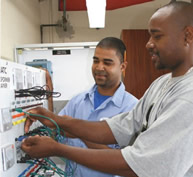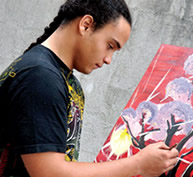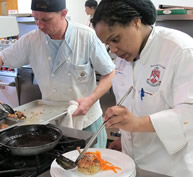General Education
Graduates and students of Bermuda College should exhibit general learning outcomes that serve as the foundation for success in their discipline and in society. These learning outcomes, central to the mission of the college, are an integral part of the curriculum.
General Education Learning Outcomes
1. Communication Skills
- Read to retain, to restate, and to apply ideas for a variety of purposes.
- Listen to retain, to restate, and to apply ideas for a variety of purposes.
- Write effectively in a variety of contexts and formats.
- Speak effectively in a variety of contexts and formats.
2. Critical Thinking Skills
- Distinguish between facts, feelings, judgments, and inferences.
- Integrate information and develop rational, reasonable interpretations, inferences and connections.
- Be open to new information, methods, cultural systems, values and philosophies.
- Devise solutions for problems and issues.
- Think creatively.
3. Quantitative and Reasoning Skills
- Make reasonable estimates.
- Perform computations using appropriate methods.
- Analyse, interpret and explain (and be able to generate) numerical information presented in tables, charts, and graphs.
- Use critical thinking skills in a mathematical context.
- Use scientific principles to solve problems.
4. Information Literacy
- Collect, verify, document, organize, and investigate information from a variety of sources, within an ethical context.
5. Cooperative & Collaborative Skills
- Interact effectively with others.
- Recognize and respect cultural diversity and understand how it influences human thought and behaviour.
6. Technology/Computer Literacy
- Be able to use computers and technology efficiently, from the perspective that such skills are necessary in today’s society.
- Have the basic knowledge of computer operations (copying files, printing documents, etc.); be able to use the Internet/World Wide Web (browsers, search engines), basic software applications (word processing, spreadsheets, etc.) and email functions (sending/receiving messages, attaching files, etc.).
- Be able to “self-teach”, that is to learn new programs and/or tasks as they are encountered.
General Education Components
Humanities
- Art and Design
- Art History
- Education
- Film
- French
- History
- Music
- Philosophy
- Spanish
- Religious Studies
- English Literature at 2000-level (excluding ENG 2212)
Social Sciences
- Economics
- Earth & Environmental Studies at 2000 level
- Political Science
- Sociology
- Psychology
- Social Work
Natural Sciences
- Biology
- Chemistry
- Earth & Environmental Studies
- Physics





